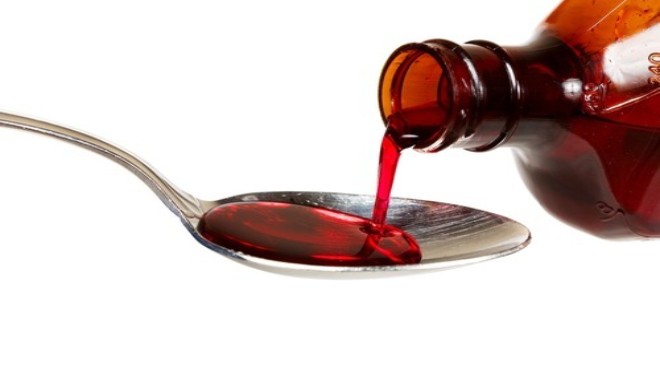The regulator, in a letter sent on December 18, has asked states and Union Territories to update the package insert of products made using a cocktail of two medicines — chlorpheniramine maleate and phenylephrine
The country’s apex health regulatory agency, the Central Drugs Standard Control Organisation (CDSCO), has decided to ban the use of a popular anti-cold cocktail medicine combination among infants and children below four years of age, News18 has learnt.
Pharma firms manufacturing GlaxoSmithKline’s T-Minic Oral Drops, Glenmark’s Ascoril Flu Syrup, and IPCA Laboratories’ Solvin Cold Syrup, among others, have been asked by the regulator to insert a ‘warning’. Three paediatricians News18 reached out to say the use of this combination is rampant among children due to self-medication and self-prescription by parents.
The regulator, in a letter sent on December 18, has asked states and Union Territories to update the package insert of products made using a cocktail of two medicines — chlorpheniramine maleate and phenylephrine.
The combination helps in relieving cold and flu symptoms, including watery eyes, runny nose, sneezing, and nasal or throat itching. While chlorpheniramine maleate functions as an anti-allergic, phenylephrine acts as a decongestant, narrowing small blood vessels to provide relief from nasal congestion or stuffiness.
CONCERNS RAISED FOR USE AMONG INFANTS
While the combination, called fixed-dose combination, was already under scanner for being “irrational”, the government committee had approved it after finding reasonable evidence.
“The FDC of Chlorpheniramine Maleate IP 2mg + Phenylephrine HCI IP 5mg drop per ml was declared as rational by Prof. Kokate’s committee and based on the recommendation of the committee, this office has issued No Objection Certificate (NOC) for continued manufacturing and marketing of subject FDC on 17.07.2015 under the 18 months policy decision,” said the letter, seen by News18.
Read More: New Vande Bharat Express Likely From Jalna To Mumbai Soon: Check Expected Route, Timing
However, later, concerns were raised against the use of this combination among infants and children. “Subsequently, concerns have been raised regarding the promotion of unapproved anti-cold drug formulations for infants,” the letter said.
On June 6, the letter said the matter was deliberated in the Subject Expert Committee (Pulmonary).
The committee recommended that the FDC should not be used in children below four years of age and accordingly, the firms should mention a warning in this regard on label and package insert.
“The recommendation of the SEC has been considered by this office,” said the letter signed by the chief of CDSCO, Drug Controller General of India (DCGI), Rajeev Singh Raghuvanshi.
Accordingly, Raghuvanshi asked the state and UT inspectors “to direct all the manufacturers of the said FDC under your jurisdiction to mention the warning – ‘FDC should not be used in children below 4 years of age’ on the label and package insert or promotional literature of the drug.”
Read More: Petrol, Diesel Fresh Prices Announced For December 20: Check Fuel Rates In Your City
OTHER COUNTRIES MADE SUCH MOVES AT LEAST A DECADE AGO: EXPERTS
According to paediatricians, developed nations such as the United States and the European Union banned such products for infants and kids almost a decade ago.
“These FDCs are not evidence-based for infants and small kids and could be harmful if used unsupervised by parents,” said a paediatrician working in a Delhi-based public hospital. “As respiratory illness in a child leads to significant parental anxiety, these FDCs are rampantly used OTC.”
Another doctor shared a study conducted in the United States which showed that their drug regulatory agency banned the use of cough and cold medicines in children younger than six years in 2007.
The US data showed that approximately 7,000 children are treated in emergency departments each year for secondary side effects of cough medications.
However, despite the warnings, a significant portion of caregivers in the US reported that they were still unaware of public warnings, potential side effects, and interactions with other medications.



































